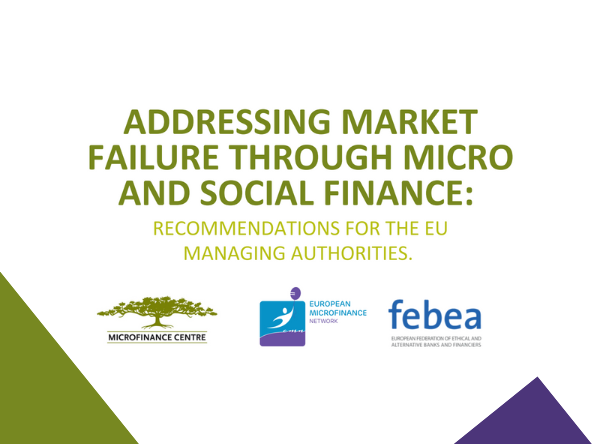This joint policy paper by MFC, EMN, and FEBEA emphasizes the critical role of micro and social finance in addressing market failures and advancing the EU’s goals of growth, employment, and inclusion.
Share this post:

This joint policy paper by MFC, EMN, and FEBEA emphasizes the critical role of micro and social finance in addressing market failures and advancing the EU’s goals of growth, employment, and inclusion. Despite their positive economic and social impacts, micro and social enterprises often face limited access to finance due to regulatory barriers, insufficient funding, and market fragmentation. The paper calls for EU Managing Authorities to develop clear regulatory frameworks, expand funding mechanisms, and strengthen the support ecosystem for these enterprises.
Key recommendations include providing risk-sharing loans, equity, and Business Development Services (BDS) grants to support vulnerable groups and social enterprises. It highlights the importance of fostering innovation, digitalization, and green transformation within the microfinance sector. The authors advocate leveraging EU initiatives like InvestEU, while designing complementary national measures to enhance financial inclusion and address the sector’s unique challenges. By addressing these gaps, the paper envisions a more robust financial ecosystem that empowers micro and social enterprises to drive sustainable economic development.
The 8th Report on Ethical Finance in Europe presents evidences of how ethical finance is now a necessary, solid and credible model that serves the common good rather than a niche alternative.
As the ESF+ appears to be questioned in the new Commission’s plans, Social Economy organizations unite to call for stronger support.
A position paper co-authored by FEBEA and the Sustainable Banking Coalition on the Omnibus Proposal.